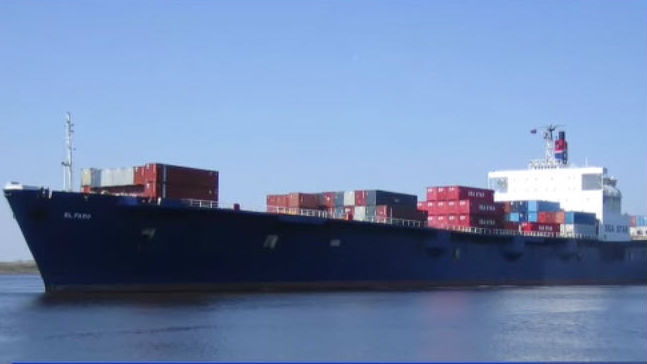USCG: El Faro Was On Inspection "Targeting List"

The Marine Board of Investigation into the loss of the El Faro continued its hearings Monday with testimony from USCG compliance officials about how vessels get selected for added scrutiny.
Captain Kyle McAvoy, USCG Chief of Commercial Vessel Compliance, told the Board that his department has a “targeting list” of vessels flagged for priority review by marine inspectors, that the El Faro was on it prior to her sinking, and that his staff was “within days” of releasing the list when she went down.
In questioning from an American Bureau of Shipping (ABS) representative about the reason she was flagged, Captain McAvoy said that he was “not aware of any non-conformities on the El Faro,” and that the tipping-point factor putting her onto the list was a “reportable marine casualty” related to a crewmember's health. Without going into further detail, he added that “there's a lot that goes into” getting close to the list’s threshold.
The panel also called USCG Captain John Mauger for a review of the Alternate Compliance Program (ACP), under which the agency delegates its flag state authority for inspections to the ABS and other classification societies.
Obtaining an ACP certificate of inspection requires that a ship meet the standards of class society rules, international requirements, and a USCG “supplement” of regulations. As of 2016, participating class societies include Det Norske Veritas, Lloyd's Register, and Germanischer Lloyd, but American Bureau of Shipping (ABS) has the bulk of the ACP market.
Captain Mauger told the Board that the ACP program has deficiencies, including what he described as an “alarming error rate” in shipbuilding plan reviews, amounting to nearly 40 percent of a sample of 500 examined by his office, many of which were “major non-conformities.”
He added that “we don't know what we don't know,” that his office is “increasingly reliant” on the class societies to provide information – and if it is not provided, the USCG does not have the resources to find it. "We're very dependent on the system . . it's hard to change systems we're very dependent on," he said.
He did credit ABS – the original member of ACP – with “major improvements” in its work for the USCG over the years.
Neither officer made any connection between an ABS plan review / inspection and the El Faro's loss.
The ACP program has come under scrutiny before. Jaideep Sirkar and John Hannon, writing for the SNAME Journal, recommended a “trust, but verify” approach to the relationship between the USCG and the ACP class societies, citing the differing aims of government marine inspectors and class surveyors.
An ABS spokeswoman declined to comment for this article, citing involvement in the ongoing investigation.
